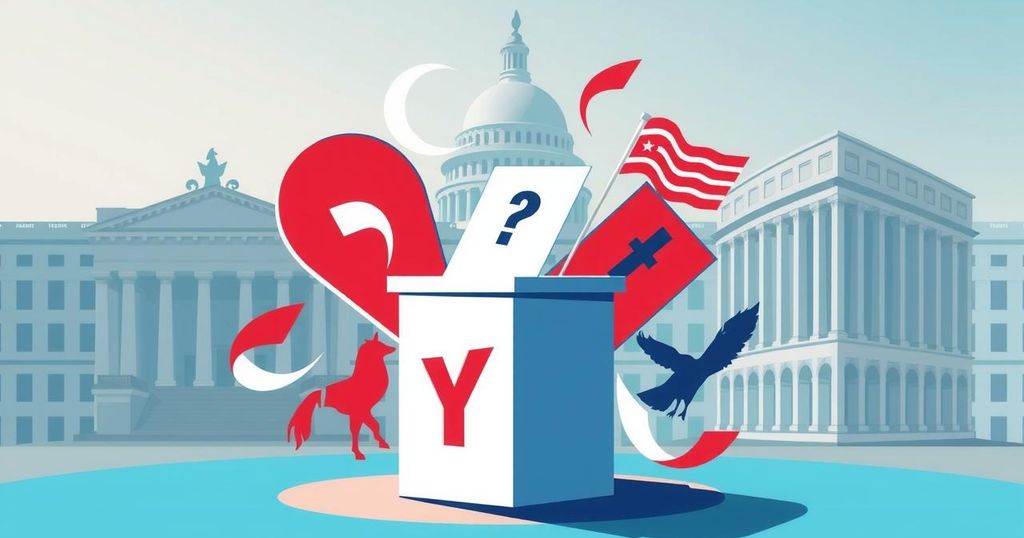Germany’s Election Results: Conservatives Triumph and AfD Surges

Friedrich Merz’s conservative party has won Germany’s national election, with the far-right AfD party becoming the second-largest. The campaign focused on economic stagnation and migration. Merz aims to form a government without the AfD, while Germany’s role in NATO and support for Ukraine remains crucial.
Provisional election results have confirmed that the mainstream conservative party led by Friedrich Merz has secured victory in Germany’s national election. Meanwhile, the far-right Alternative for Germany (AfD) party has seen substantial gains, becoming the country’s second-largest political force. This election was marked by public concerns about the stagnation of Germany’s economy and intensified discussions surrounding migration policy, as Merz advocated for stricter measures.
Germany, a key player within NATO and the European Union, plays an instrumental role in addressing pressing geopolitical challenges, including the ongoing conflict in Ukraine. In this context, Germany has been a significant supplier of weapons to Ukraine, which further emphasizes its importance in regional security discussions. Merz’s victory may influence Germany’s response to evolving international relations, especially in light of the Trump administration’s foreign policy.
Following the election, President Trump expressed his approval of the outcome, stating, “Much like the USA, the people of Germany got tired of the no common sense agenda, especially on energy and immigration, that has prevailed for so many years. This is a great day for Germany.” Ukrainian President Volodymyr Zelenskyy also congratulated Merz, highlighting the collaborative efforts to aid Ukraine and ensure peace in the region. Furthermore, NATO Secretary General Mark Rutte noted the necessity for increased defense spending and expressed eagerness to collaborate with Merz on security matters.
The results show that Merz’s Christian Democrats and the center-left Social Democrats have secured a collective majority in Germany’s national legislature. This outcome presents Merz with a favorable opportunity to assume the chancellorship, as he aims to form a government by Easter. He has, however, ruled out any coalition with the AfD, which has garnered increased support, winning 152 seats in the Bundestag alongside Merz’s 208 seats, while the Social Democrats won 120.
The AfD has expressed optimism about its electoral performance, with party leaders aiming to position themselves as the leading party in the future. Despite its growing influence, the AfD continues to face resistance from other political entities, which have pledged not to collaborate with it due to its associations with right-wing extremism. The party remains under scrutiny from domestic intelligence due to concerns about its radical elements, which is particularly sensitive in light of Germany’s historical context.
For the time being, the outgoing Chancellor Olaf Scholz, representing the Social Democrats, will maintain his position following the defeat of his party. This election was held earlier than anticipated due to the collapse of Scholz’s coalition government amidst internal disputes and dwindling public support for the administration. “I am aware of the responsibility,” Merz stated, indicating his recognition of the challenges that lie ahead and the urgency for effective governance following the election, emphasizing the need for prompt action instead of extended coalition negotiations.
The recent elections in Germany have resulted in a victory for the conservatives led by Friedrich Merz, with the far-right AfD emerging as the second-largest party. Despite the competitive landscape, Merz has vowed to form a government without aligning with the AfD, which represents a significant challenge due to its controversial standing among other parties. The election results reflect a shift in the political landscape, with the new government tasked with addressing economic stagnation and immigration issues, amidst rising geopolitical tensions in Europe.
Original Source: www.cbsnews.com







